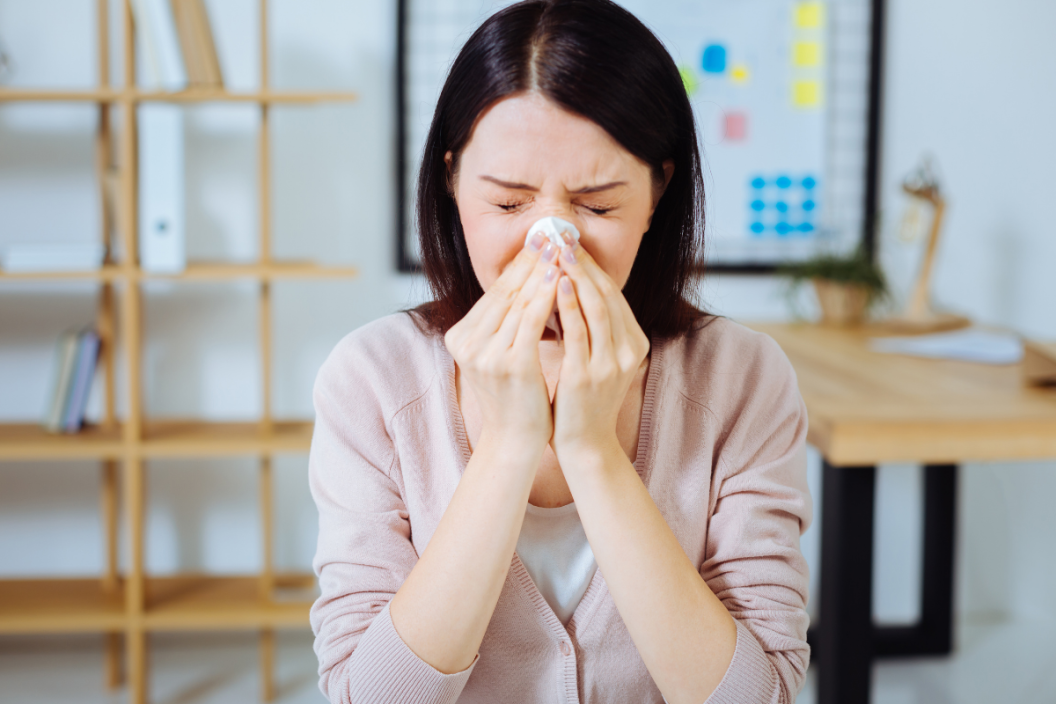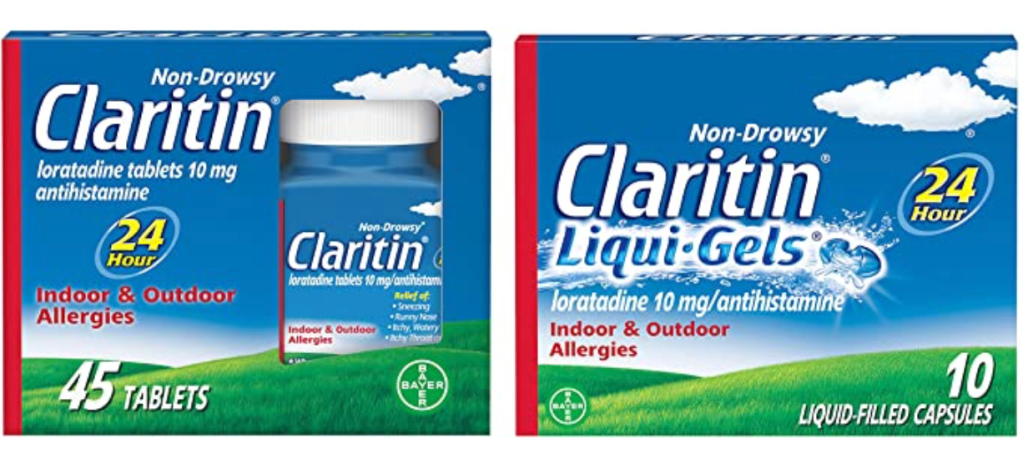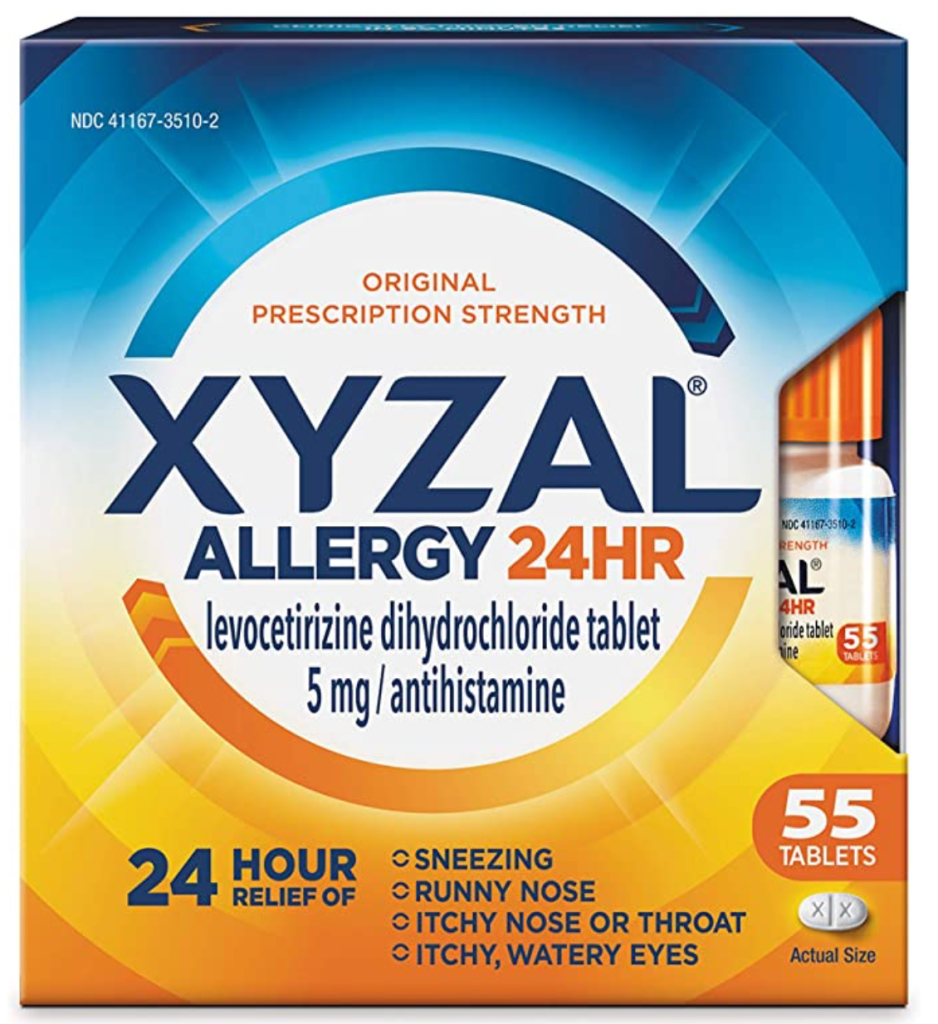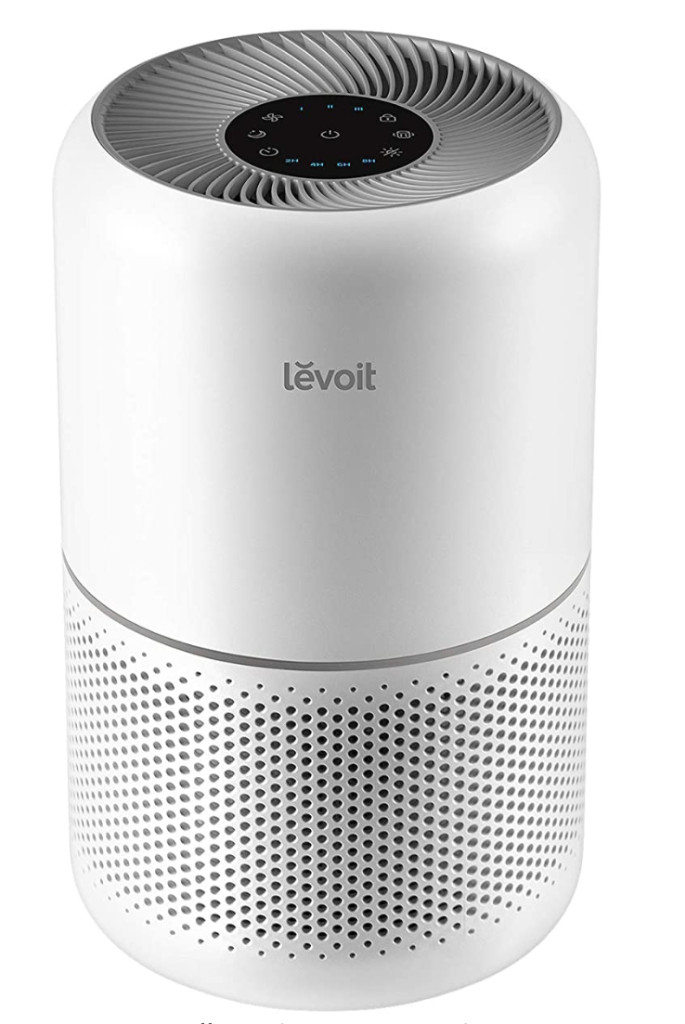Runny nose? Itchy eyes? Congestion? Sounds like it could be pet allergies.
Many people became new pet owners over the pandemic. Whether they welcomed pets into their lives for the first time or acquired new types of pets, many are now experiencing what has become known to allergists as "pandemic pet allergies." Now, solutions for pet owner allergies has become an important topic of conversation.
For some allergy sufferers, their new furry family member is likely to be the cause. As we move into indoor weather, many are looking for solutions to their cat and dog allergies. Wide Open Pets sat down with allergist Dr. Tania Elliott to discuss what causes pet allergens and what pet parents can do about them.
Symptoms Of Pet Allergies
Allergy symptoms can vary from person to person, and they can also vary by the pet. For example, cat allergies may present themselves differently than dog allergies. At the same time, someone who is allergic to certain dog breeds may not have an issue with others.
For pet owners who are newer to allergies, allergist Dr. Tania Elliott says to look out for signs such as:
- Runny nose
- ?Postnasal drip
- Itchy eyes or general itchiness
- Rashes and hives
- Asthma flare-ups
For those with lung issues and asthma, allergies can also cause shortness of breath. In addition, pet allergies and seasonal allergies can both cause watery eyes, sneezing, and a stuffy nose.
Causes Of Pet Owner Allergies
https://twitter.com/AllergyInsider/status/1422993544017555465
RELATED: Fight Seasonal Dog Allergies With These Natural Remedies
Dr. Elliot says that "COVID pets" are triggering first-time allergies in new cat and dog owners, bringing these pet parents into allergists' offices looking for some allergy relief.
According to the Asthma and Allergy Foundation of America, it is relatively common for people to be allergic to their pets. In fact, between 15 and 30 percent of Americans suffer from pet allergies; several factors can cause allergic reactions. Most people are allergic to cats and dogs since they are the more common pets. However, people can be allergic to their farm animals like horses and goats. Even rabbits can cause an allergic reaction.
Most often, pet dander is the cause of the reaction. When there are high dander levels in your home, or wherever you may be spending long periods of time with your pet, there can be a build-up that causes an allergen response.
Dog allergens can present themselves in multiple ways. For example, while some pet parents may be allergic to the amount of dander their dog produces, other pet parents may be allergic to their dog's saliva, giving them rashes.
Another common cause of allergies is an increase in dust mites, hay fever, and pollen. So it may not be your pet you're allergic to, but something in their food or environment.
Can I Get A Hypoallergenic Dog or Cat?
Many people hope that getting a hypoallergenic pet will mitigate any issues they may have with pet allergies. However, it may not actually work that way. According to Dr. Elliott, "There is no such thing as a hypoallergenic cat or a dog."
"Some of the confusion comes around whether pets shed or don't shed, and people think that they are just allergic to the dog's hair or fur. But the truth is you could be allergic to the skin cells of the dog. So it does not matter if they shed or don't shed."
Dr. Elliott also pointed out that the allergic person could be reacting to their pet's saliva, meaning your allergies may not be about the pet's fur or dander at all. Dr. Elliott recommended the best thing to do if you start to suffer symptoms is to test your allergen levels. If you have yet to get a pet but are concerned about allergies, you can do allergy testing. The test can be in the form of a skin test or a blood test to see what pet proteins cause an allergic reaction so you know which pets you may want to avoid.
Top Solutions For Pet Allergies
Thankfully, there are many ways allergy sufferers can mitigate their nasal congestion and other allergy symptoms. With just four steps, you can start to get a handle on your pet allergy symptoms. Here are some of the best solutions for pet owners with allergies.
Clean Your Pets
One easy way to reduce your pet's dander is to clean them regularly. You should bathe them once a week or take them to the groomer. While this option may not be popular with cats, Dr. Elliott suggests using wipes to reduce the amount of dander and pollen that may be on your cat's fur.
Allergy Shots
[buy_nowlink=https://amzn.to/2WjTSJQ]
Allergy shots are a way of boosting the body's immune system. You visit an allergist once a week, and they give you the shot, which has the proteins you are allergic to. This helps bolster your body's natural response reducing your reaction over time. The practice is called immunotherapy, and it changes your immune system over time.
"You actually train your body to no longer be allergic, and those can be up to 80 percent effective at completely curing your allergies," Dr. Elliott told us.
Over-the-Counter Allergy Medication
[buy_nowlink=https://amzn.to/3sQFhld]
Histamines cause the body's allergic reaction to pollen and pet dander. However, taking an antihistamine like a nasal spray or an oral medication can help reduce your symptoms. One of the medications that you can take is something like Xyzal or Zyrtec.
Get An Air Purifier
[buy_nowlink=https://amzn.to/3kpaIPR]
Some more natural options include keeping your pets out of your bedroom, keeping them off upholstered furniture, and using a high-efficiency particulate air filter. Getting a HEPA filter will help eliminate the particles in your space that the vacuum cleaner has missed. Also, make sure you are vacuuming your space once a week.
As you head into fall, all of these tips will help you reduce the number of dust mites and pet dander in your home. I don't know about you, but I definitely need to go vacuum up some pet hair!
Editor's Note: Products featured on Wide Open Pets are independently selected by our editors. However, when you buy something through our links, we may earn a commission.
Are you suffering from "COVID pet" allergies? Let us know over on our Wide Open Pets Facebook page!
READ MORE: Feline Fur Gets a Bad Rap for Causing Cat Allergies, but This Protein Is the Real Villain








